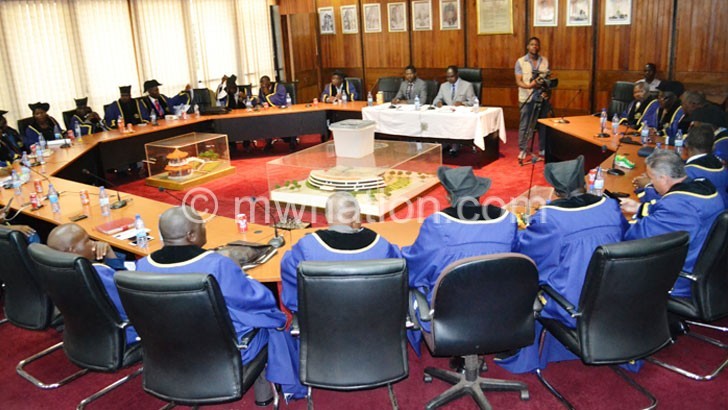Mixed views on local govt bill
There are mixed views on the Local Government Amendment Bill which, among others, seeks to set the Malawi School Certificate of Education (MSCE) as the minimum qualification for ward councillors.
The draft Bill, which we have seen and is currently with the Ministry of Justice and Constitutional Affairs, also proposes direct election of mayors and deputy mayors for a five-year term.

Governance commentators have, however, faulted some provisions in the amended Bill, saying it gives more powers to the central government in the management of councils, which is contrary to the spirit of decentralisation.
For example, the Bill gives powers to the Secretary for Local Government to discipline district commissioners (DCs) and chief executive officers (CEOs) of councils and further allows the central government to maintain its powers to deploy them.
Reads the Bill in part: “The Secretary for Local Government shall recommend to the Secretary to the President and Cabinet [SPC] for re-deployment of any district commissioner or chief executive officer to any central government office whenever necessary.”
But Catholic Commission for Justice and Peace (CCJP) national coordinator Boniface Chibwana backs the proposal to set the minimum qualifications for councillors, saying, looking at their work, councillors ought to have a certain level of education to easily understand issues.
Chibwana, however, is riled with provisions which give powers to the central government to discipline DCs and CEOs as well as to deploy them.
He said: “We need to advocate for real devolution of power whereby local councils should be running the councils in terms of recruitment of DCs and determining their welfare that includes disciplinary measures.
“Ministry of Local Government should concentrate on policy. Let’s have proper fiscal decentralisation by empowering local councils in running affairs of the council”.
On his part, Centre for Social Accountability and Transparency executive director Willie Kambwandira said he was particularly happy with the fact that the Bill seeks to strip members of Parliament of voting powers in council elections.
He further welcomed the introduction of minimum qualification for councillors as their intellectual capacity is crucial to their performance.
“However, we are greatly concerned that the central government continues to usurp powers over the local government authorities, which is in sharp contrast to the decentralisation drive,” said Kambwandira.
Meanwhile, Malawi Local Government Association (Malga) said it has written the Ministry of Local Government and Rural Development on its concerns with the Bill.
In an interview yesterday, Malga executive director Hadrod Mkandawire could not state the actual issues raised with the ministry, saying that they are waiting for a response after which they can comfortably comment on the matter.
He said: “It will not be right for us to state our position on the matter when we have engaged the ministry.
“We have issues with the Bill and we have asked for reconsideration on some aspects. Only until we get the response will we provide our position. For now, let’s wait.”
Among other provisions in the bill is the extension of tenure of office for chairperson and vice-chairperson of district councils from one year to two and half years renewable once.
“This Bill seeks to amend the Local Government Act (Cap. 22:01) of laws of Malawi (the “Act”) in order to improve the efficiency and effectiveness of the local authorities and to align the Act with objectives of decentralisation as stipulated in the Decentralisation Policy, 1998,” reads the introductory part of the Bill.






One Comment